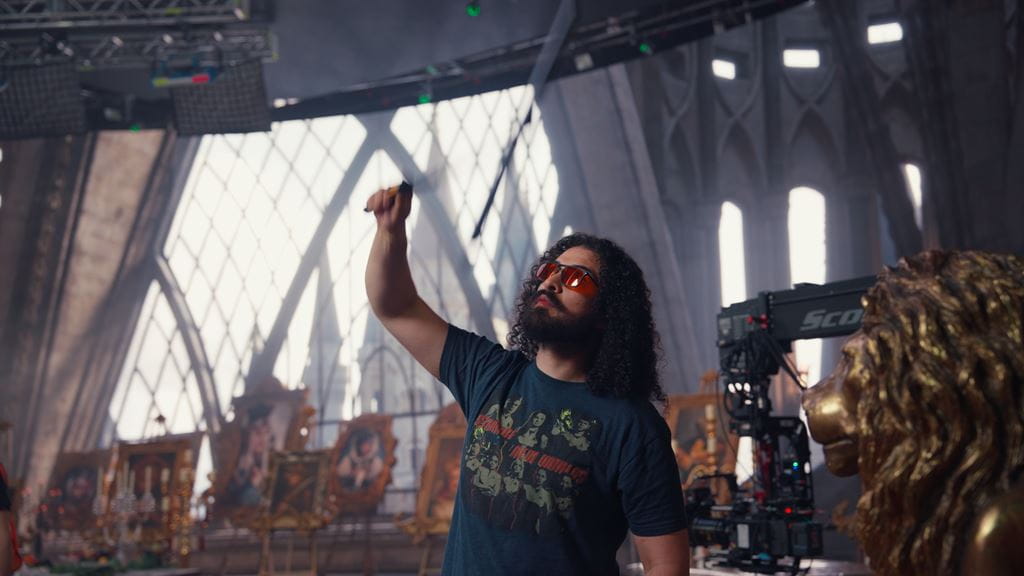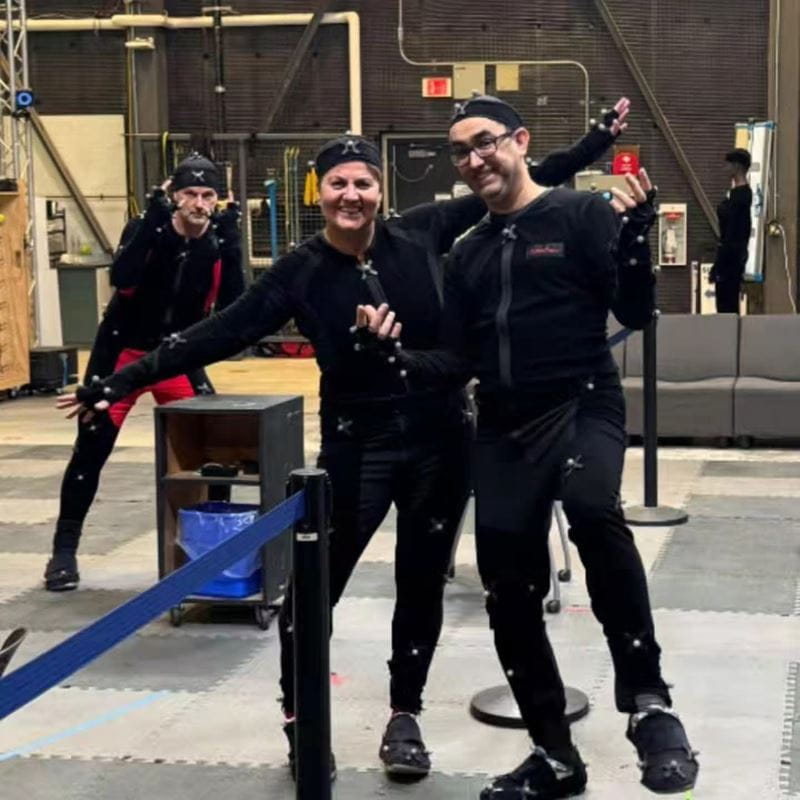
How SIRT’s Virtual Production micro-credential program changed three creative lives
 by Vanessa Cheng – Sep 5, 2025
by Vanessa Cheng – Sep 5, 2025 In the rapidly evolving world of film, television and interactive media, virtual production (VP) has emerged as a game-changer — and so has Generator at Sheridan’s Screen Industries Research and Training (SIRT) Centre’s Virtual Production Micro-Credential (VPMC) program, offering creators entirely new ways to tell stories.
For three graduates, this program didn’t just provide a new set of skills or technical upgrades; it opened doors to entirely new career paths, industries and ways of thinking. From assistant directors to visual effects artists, SIRT’s hands-on, collaborative learning environment has sparked a lasting and life-changing impact.
 Before joining the first VPMC cohort in 2022, Kasra Kalami did not understand what VP was, let alone consider a career in it. Formerly an Assistant Director before transitioning his career to focus on VP as a Department Coordinator at the Realtime Technologies Department with Pixomondo’s Clara — a division that provides services for the design, building and on-set operation of LED volumes for in-camera visual effects (VFX) — Kalami found the VPMC’s ecosystem-focused approach invaluable.
Before joining the first VPMC cohort in 2022, Kasra Kalami did not understand what VP was, let alone consider a career in it. Formerly an Assistant Director before transitioning his career to focus on VP as a Department Coordinator at the Realtime Technologies Department with Pixomondo’s Clara — a division that provides services for the design, building and on-set operation of LED volumes for in-camera visual effects (VFX) — Kalami found the VPMC’s ecosystem-focused approach invaluable.
The impact was immediate and profound. In addition to gaining technical skills working with software such as real-time 3D creation tool Unreal Engine, Kalami also learned how three critical components of VP — motion capture, visual artistry and Unreal Engine — intersect to prepare participants for real-world challenges. The knowledge paid off immediately. During his time in the program, a chance encounter on the set of Beacon 23, which was partially shot on a virtual production stage, connected him with producers from Pixomondo and landed him his role with their studio, contributing to projects like Star Trek: Discovery, Strange New Worlds, Handmaid’s Tale and Every Minute Counts.
“Calling it life-changing isn't an exaggeration - it shaped the entire direction of my career.”
– Kasra Kalami
“Calling it life-changing isn’t an exaggeration — it shaped the entire direction of my career,” said Kalami. “The program introduced me to a whole new area of the industry, gave me foundational training, and directly led me to my career with Pixomondo.”
For husband-and-wife duo Gustavo Sanchez Perez and Mercedes Delgado Romero who were part of the third program cohort in 2025, respectively a VFX veteran and lighting and texture artist, the VPMC program marked a transition point in their careers.

“We were both eager to explore the potential of virtual production,” said Sanchez. “It wasn’t just about films anymore — VP was starting to influence games, commercials and previsualization. We saw the shift coming and wanted to jump in together.”
The course helped Sanchez transition from traditional VFX to a new role at Ubisoft Toronto on the Junction Cinematics team, though he says his biggest takeaway from the program was a mindset shift.
“This program expanded my thinking,” said Sanchez. “It pushed my knowledge of Unreal, and reignited my curiosity — especially around photogrammetry and emerging AI-driven motion capture tools.”
For Delgado, the experience was a creative awakening that gave her a 360-degree view and hands-on experience with the entire production process — from planning to post — that she hadn’t been exposed to before.
“I left with a complete understanding of the production process, which expanded my job opportunities in the growing industry.”
– Mercedes Delgado Romero
“The program provides hands-on experience on every single step of the production,” said Delgado. “I left with a complete understanding of the production process, which expanded my job opportunities in the growing industry.”
All three graduates agree — virtual production is only getting started. With tools like Unreal Engine becoming more powerful and accessible, and AI enabling new workflows, the industry is on the cusp of major transformation. And thanks to SIRT’s Virtual Production micro-credential program, graduates like Kalami, Sanchez and Delgado are not just ready for what’s coming — they’re helping build it.
The Screen Industries Research and Training Centre (SIRT) drives creative and technological advances within the screen industries and innovative application of screen industry technologies within the performing arts and other sectors. SIRT empowers industry and community partners to advance innovation in storytelling and content creation through leading-edge applied research and customized training to equip professionals with the skills and practical knowledge they need to make an immediate and positive impact on the workforce. Visit sirtcentre.com for more information.
Media Contact
For media inquiries, contact Sheridan’s Communications and Public Relations team.


